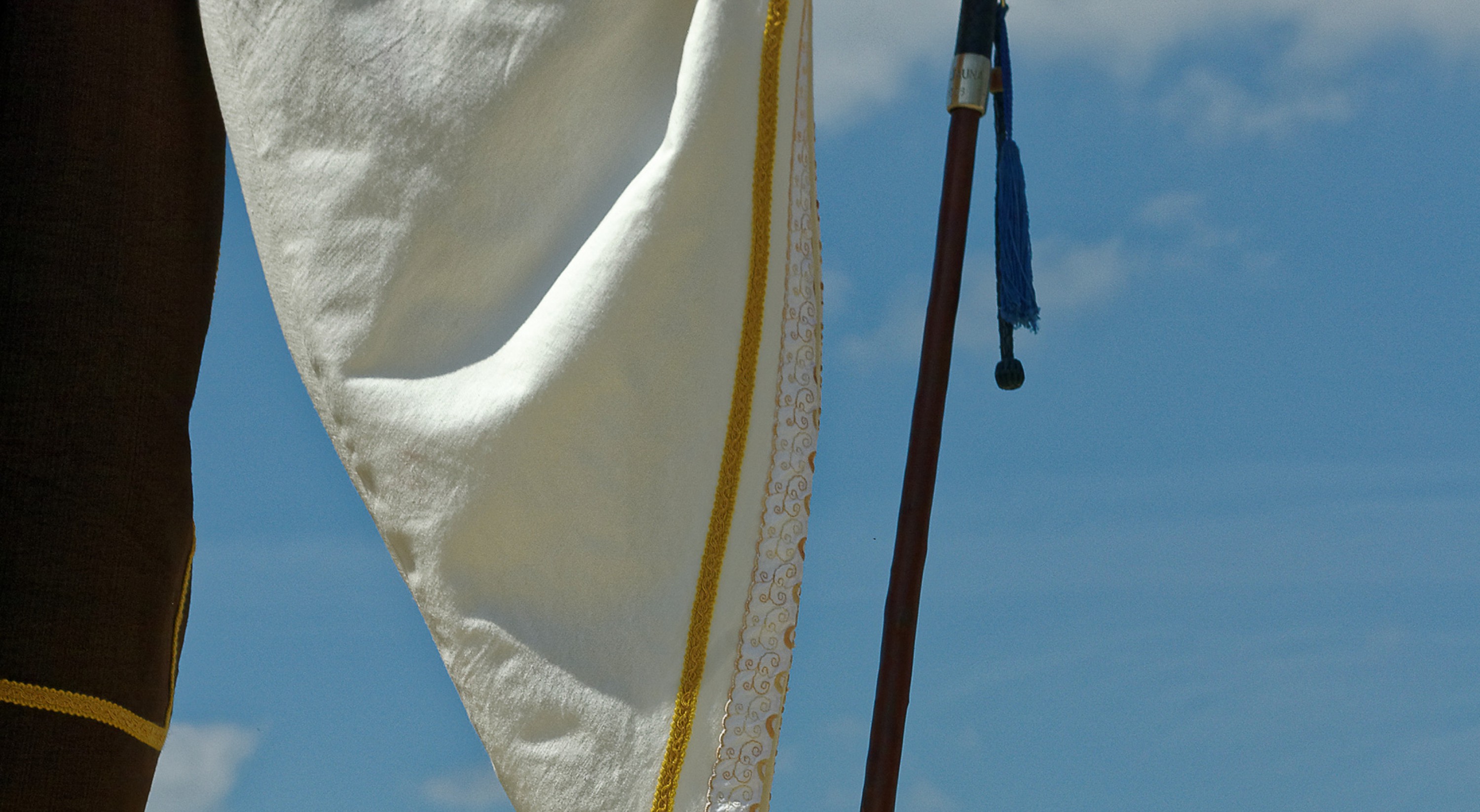OHIBERRITZE
Tradition and creation in the Basque Country
Pastorale Jean Pitrau, Maurice Ravel, Ramon Lazkano, Songs and Souletine dances
septembersept 17
I Pastorale Jean Pitrau (excerpts) from the town of Tardets-Sorholus, 2016
Pier-Paul Berzaitz, text and music
Jean-Pierre Recalt, errejent/artistic director
Erramun Garcia-Zabalegi, costumes
With the participation of the people of Tardets-Sorholus
II Maurice Ravel: Trio in A minor for violin, cello and piano
Trio Dali
III Ramon Lazkano: Ravel (Scènes)
After Ravel, by Jean Echenoz
Première. Commissioned by the Festival d’Automne à Paris and de Donostia/San Sebastián 2016-European Capital of Culture
Maïlys de Villoutreys, soprano
Anders J. Dahlin, tenor
Ensemble L’Instant Donné
Tito Ceccherini, conductor
IV Dantzaren botzak (Voice of dance)
Titika Rekalt, author and narrator
Tehenta, vocal ensemble
Johañe Etchebest and the dancers
Iban et Beñat Etchegoinberry, Ximun Bedecarratz, Ibai Capot Thornary, Luka Erbinartegaray, Jon Gamiochipi
Gillen Gamiochipi, musician
Festival d’Automne à Paris production // Jointly produced by the Théâtre du Châtelet and the Festival d’Automne à Paris // In collaboration with the Association Atharratze Jauregia de Tardets-Sorholus, Kursaal Eszena and Donostia/San Sebastián 2016-European Capital of Culture // Proudly supported by Mécénat Musical Société Générale, the Ernst von Siemens Foundation for music and King’s Fountain // Supported by Sacem, Voyages SNCF, the Institut Etxepare de Saint-Sébastien, the Olaso Dorrea Fundazioa, and the Institut culturel basque d’Ustaritz // Aknowledgement to Pierre Lasserre, Carmen Immobilier, Pierre Oteiza and Philippe Tillous-Borde
Parts II, III and IV will be performed again at Kursaal de Saint-Sébastien, at 7pm, 18th December.
In Basque, ohi conjures up the notion of perpetual movement and berritze implies the idea of rebirth. Ohiberritze is perpetual rebirth. Pastorales, from the upper Pyrenean valleys of Soule, have been performed there for centuries. They are theatrical performances in the Basque language. They are rituals of pure beauty that move to the beat of the makila stick, born of the confrontation between divine, satanic and human worlds. Each year a different township is given the task of performing a pastorale, and 2016 sees that honour bestowed upon the south Soule village of Tardets-Sorholus. It depicts the life of Jean Pitrau (1929-1975), charismatic personality from the village and one of the founding fathers of European agricultural syndicate. The evening’s performance in four part opens to an hour of excerpts from the Jean Pitrau Pastorala.
Part two, Maurice Ravel: Trio Dali performs the Trio, a piece constructed around the zortziko rhythms that are emblematic of the Basque music that influenced Ravel, who grew up in Ciboure and learned Basque from his mother.
Following that is a selection of excerpts from Ramon Lazkano’s opera in progress Ravel (Scènes). The opera draws on the novel by Jean Echenoz, Ravel, in which “[the author] uses few words and a hastened sense of time to narrate the last ten years of Ravel’s life – his descent into aphasia and ultimate loss of identity” (Ramon Lazkano).
Titika Rekalt will then tells a story he wrote in Souletine dialect which leads into the final sequence – a group of young dancers and singers will take to the stage to reinvent the movements that make up today’s living traditions: Ohiberritze
